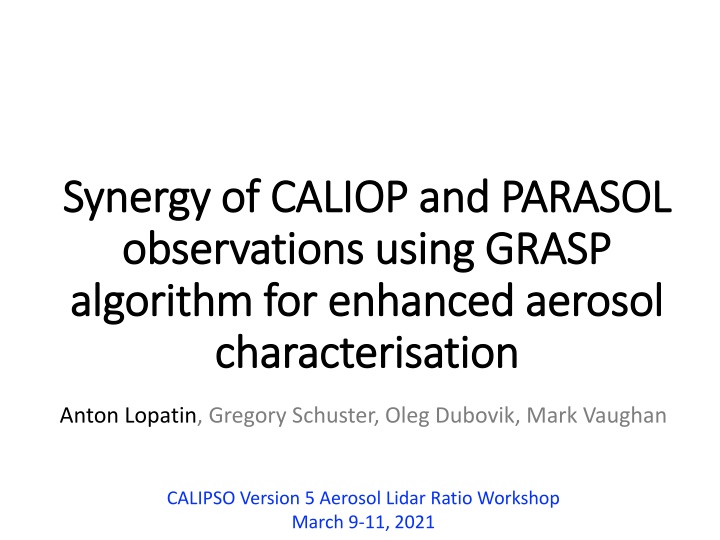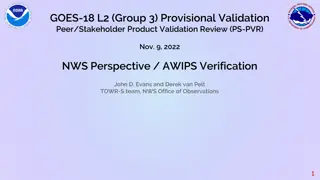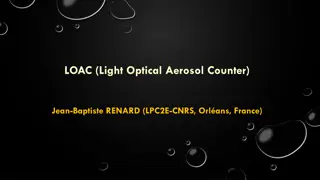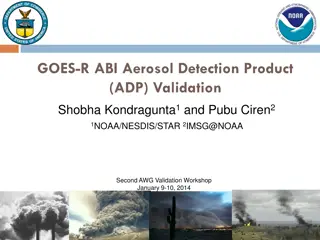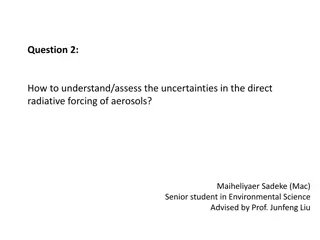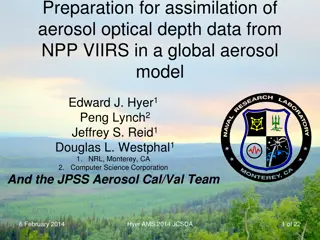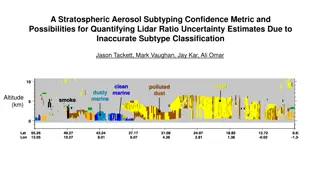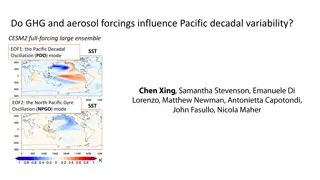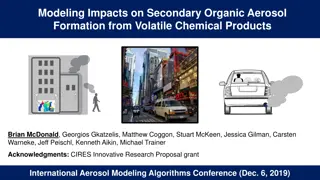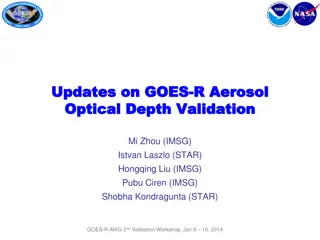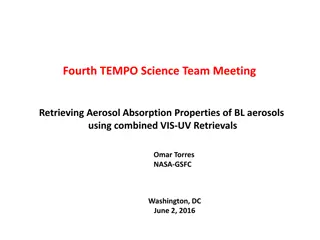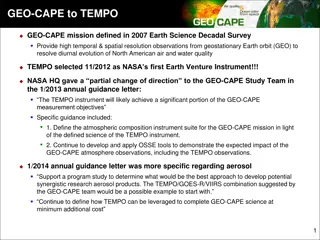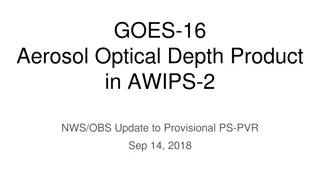Enhanced Aerosol Characterisation Using CALIOP and PARASOL Observations with GRASP Algorithm
Synergy of CALIOP and PARASOL observations for enhanced aerosol characterisation utilizing the GRASP algorithm. Explore aerosol modelling, polarimeter, lidar data analysis, and forward modelling tests with detailed parameter insights. Discover total parameters available for microphysics and vertical distributions.
Download Presentation

Please find below an Image/Link to download the presentation.
The content on the website is provided AS IS for your information and personal use only. It may not be sold, licensed, or shared on other websites without obtaining consent from the author.If you encounter any issues during the download, it is possible that the publisher has removed the file from their server.
You are allowed to download the files provided on this website for personal or commercial use, subject to the condition that they are used lawfully. All files are the property of their respective owners.
The content on the website is provided AS IS for your information and personal use only. It may not be sold, licensed, or shared on other websites without obtaining consent from the author.
E N D
Presentation Transcript
Synergy of CALIOP and PARASOL Synergy of CALIOP and PARASOL observations using GRASP observations using GRASP algorithm for enhanced aerosol algorithm for enhanced aerosol characterisation characterisation Anton Lopatin, Gregory Schuster, Oleg Dubovik, Mark Vaughan CALIPSO Version 5 Aerosol Lidar Ratio Workshop March 9-11, 2021
GRASP: a highly versatile algorithm Sentinel 4 HIMAWARI 2
General structure ap k k 1 k 1 dV(r)/dlnr, dV(h)/dh n( ) ( ) Csph 1 ( ) ( ) Pij( ) Vf,c(h) Sa( ) ( h) Rs( ) surface BRDF ap+1=ap-tp ap No Radiative transfer Lidar equation Good fit? ap=afinal Yes Numerical inversion af k 1 dV(r)/dlnr, dV(h)/dh, n( ) ( ) ( h) ( h) Sa( h) ( h) Polarimeter & Lidar data 3
PARASOL: Aerosol modelling SD 5 log normal size bins 6 wl complex refractive index Spherical particles fraction Height parameter ? 1 ?? ? = ?? Total: 19 parameters Available at https://download.grasp-cloud.com/polder/high-precision/ https://download.grasp-cloud.com/polder/optimised/ 4
PARASOL+CALIOP: Aerosol modelling SD 5 log normal size bins 7 wl complex refractive index Spherical particles fraction 100 point vertical distribution Total: 120 parameters 5
Where else to get missing microphysics? Total: 6 to 505 parameters (6, 105, 205, etc.) https://download.grasp-cloud.com/polder/models/ https://doi.org/10.5194/amt-2020-422 5 concentrations of predefined aerosol types 1 to 500 parameters for vertical distributions 6
TESTS: Forward modelling PARASOL polarimeter (6I+3U/Q) CALIOP spacelidar (2 +1 ) 2 observation combinations: synergy (L&P) stand alone (L) Complex scene Simple scene 7
CALIOP+PARASOL: complex case 2 December 2019 GRASP ACE mid term meeting , Lille 9
